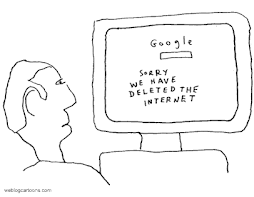Stumbled across an interesting article in the respected New Scientist Report written by Ewen Callaway, Feb 18, 2009.
The report makes a convincing argument that iTunes university (e-learning) is better than in class learning. I have recently been introduced to iTunes university...thank you Ben...and it is well worth checking out...in fact iTunes university will be a topic for a future blog; meanwhile, I have taken the liberty of posting the article below for your enjoyment.
New Scientist Report - Feb 18, 2009
Students have been handed another excuse to skip class from an unusual quarter. New psychological research suggests that university students who download a podcast lecture achieve substantially higher exam results than those who attend the lecture in person.
Podcasted lectures offer students the chance to replay difficult parts of a lecture and therefore take better notes, says Dani McKinney, a psychologist at the State University of New York in Fredonia, who led the study.
"It isn't so much that you have a podcast, it's what you do with it," she says.
Launched less than two years ago, Apple's iTunes university offers college lectures on everything from Proust to particle physics to students and the public. Some universities make their lectures available to all, while others restrict access to enrolled students. Some professors even limit downloads to encourage class attendance, McKinney says.
To find out how much students really can learn from podcast lectures alone - mimicking a missed class - McKinney's team presented 64 students with a single lecture on visual perception, from an introductory psychology course.
Half of the students attended the class in person and received a printout of the slides from the lecture. The other 32 downloaded a podcast that included audio from the same lecture synchronised with video of the slides. These students also received a printed handout of the material.
The researchers told the students they would be tested on the material in a week, and they also asked students to hold onto their class notes.
Clear results
Students who downloaded the podcast averaged a C (71 out of 100) on the test - substantially better than those who attended the lecture, who on average mustered only a D (62).
But that difference vanished among students who watched the podcast but did not take notes.Students who listened to the podcast one or more times and took notes had an average score of 77, McKinney says.
Motivation might have been an issue, as the experiment did not count for class credit, though the highest scorer in each group earned a $15 iTunes gift certificate.
McKinney want to now test how podcasts affect learning across an entire semester, rather than from just a single lecture. Students might find them more useful early on in a class, when the material is still new, she says.
Though her team's paper is subtitled "Can podcasts replace Professors," McKinney thinks these technologies can buttress traditional lectures, particularly for a generation that has grown up with the Internet.
"I do think it's a tool. I think that these kids are programmed differently than kids 20 years ago," she says.
Darren Griffin, a geneticist and education researcher at the University of Kent in Canterbury, UK, says podcast lectures are good for lecturers too. They free him up to spend precious class time interacting with his students, rather than just talking at them.
To further coax them into the classroom, he gives his students brief quizzes before each class. "I get 98% attendance that way," he says.
Saturday, February 21, 2009
Subscribe to:
Post Comments (Atom)




No comments:
Post a Comment